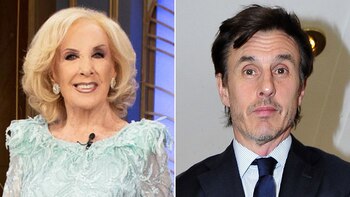
(ATR) FIFA awards Qatar with what are essentially two test events ahead of the 2022 World Cup.
The FIFA Council, meeting in Paris on Monday, decided that the final two editions of the current seven-team format of the FIFA Club World Cup will be held in Qatar in 2019 and 2020.
Since the Club World Cup is usually held in early December, the same time of the year that the 2022 World Cup will be played, the next two editions should give organizers a clear picture of what to expect in terms of climate for FIFA’s showpiece event.
In April, FIFA approved an expansion of the Club World Cup to 24 teams beginning in 2021. FIFA says a recommendation on where to hold the first expanded competition will be made at the next FIFA Council meeting in Shanghai in October.
It is still unclear if European clubs will show up for the expanded tournament. The European Club Association (ECA) is opposed to it, and has threatened a boycott. Under the current plan, eight of the 24 clubs are supposed to come from Europe.
The FIFA Council also has paved the way for FIFA President Gianni Infantino to be re-elected by acclamation at the FIFA Congress in Paris on Wednesday.
Infantino is running unopposed for a second term and the FIFA Council unanimously agreed to submit a proposal to the Congress to change the statutes so that a voice vote is all that is required when there is only one candidate. FIFA points out that this practice is "already largely applied at confederation level".
The FIFA Council also approved a series of amendments involving three sets of regulations that will be presented at the Congress.
Among the highlights are the return of the offense of "corruption" to the code of ethics, less than a year after it was removed, and the inclusion of zero tolerance of racism in the disciplinary code.
FIFA says corruption is already covered by article 27 of the ethics code regarding bribery, but the move to bring the word back is an acknowledgment that its removal last year was not a good look for an organization that has been riddled in recent years with widespread corruption cases resulting in jail time for some high-profile soccer officials.
The new zero tolerance for racism would mean matches would be declared automatically forfeited following the application of the three-step procedure that FIFA introduced in 2017.
Under the current procedure, referees can stop the match and request an announcement in the stadium calling for any racist chanting or other racist behavior to cease. If that fails, the referee can suspend the game until the behavior stops. Should it continue, another announcement is made and after that, the referee is to officially abandon the match.
Questions remain as to the effectiveness of the procedure, since there have been instances where referees appear to be ignoring, or seem unable to hear, obvious racist chanting during games they are officiating.
Written by Gerard Farek
For general comments or questions,click here.
25 Years at #1: Your best source of news about the Olympics is AroundTheRings.com, for subscribers only.
Últimas Noticias
Sinner-Alcaraz, the duel that came to succeed the three phenomenons
Table tennis: Brazil’s Bruna Costa Alexandre will be Olympic and Paralympic in Paris 2024

Rugby 7s: the best player of 2023 would only play the medal match in Paris

Rhonex Kipruto, owner of the world record for the 10000 meters on the road, was suspended for six years

Katie Ledecky spoke about doping Chinese swimmers: “It’s difficult to go to Paris knowing that we’re going to compete with some of these athletes”




